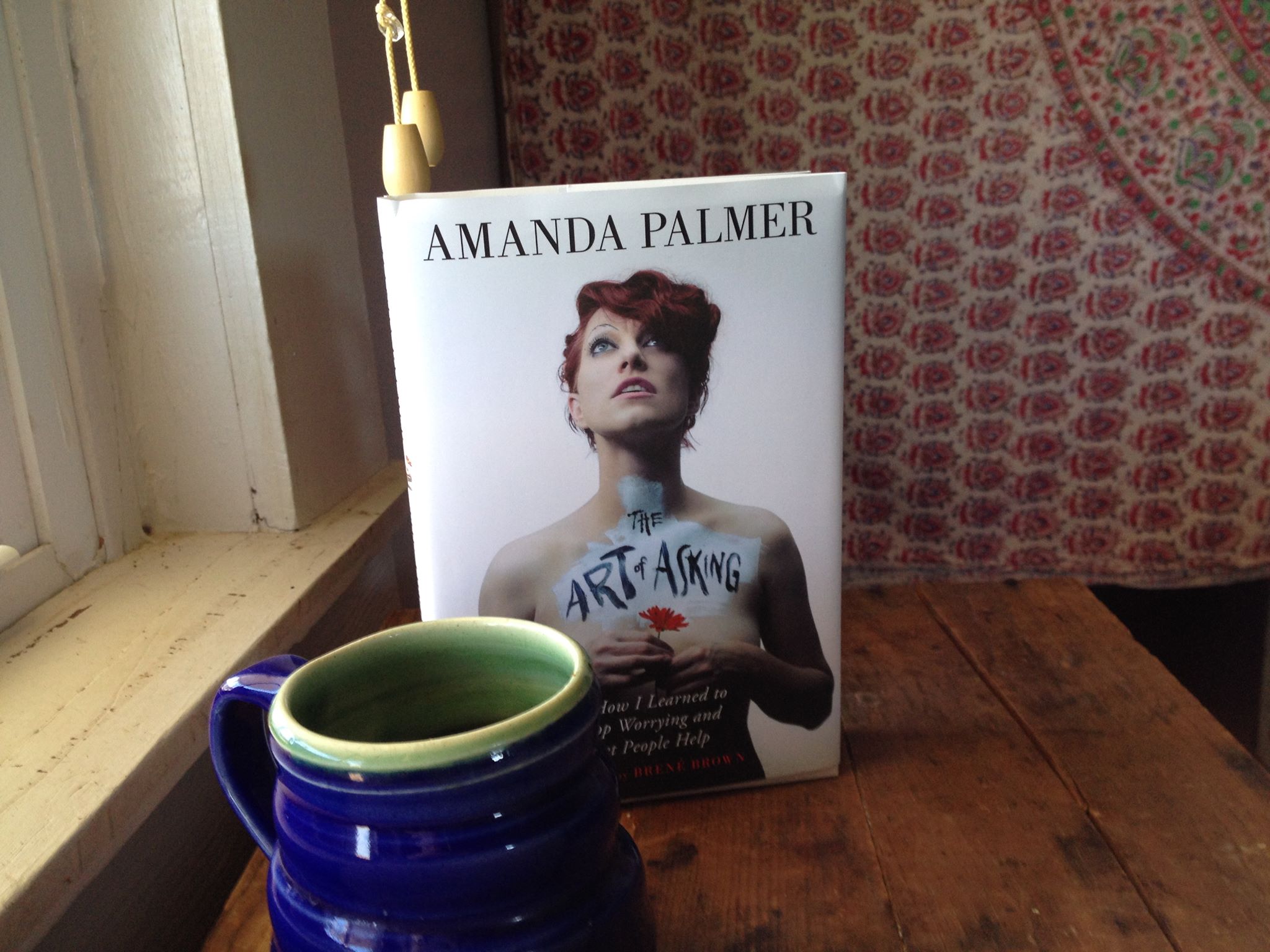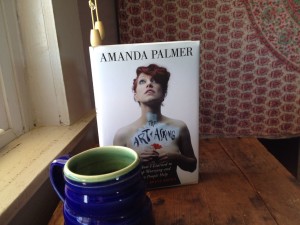
NOVEL IDEA: The Art of Asking
Welcome! Pour yourself a cup of coffee or tea and grab some novel ideas in this new Monday blog series.
 In Amanda Palmer’s revealing and generous book, “The Art of Asking”, she pinpoints what her entire artistic drive has been towards: “PLEASE. BELIEVE ME. I’M REAL. THIS HURTS.”
In Amanda Palmer’s revealing and generous book, “The Art of Asking”, she pinpoints what her entire artistic drive has been towards: “PLEASE. BELIEVE ME. I’M REAL. THIS HURTS.”
At a yoga retreat, she is asked by one of her teachers “to try and remember the first instance in our childhoods when we noticed that things were, for lack of a more clinical term, ‘not okay.’
Her answer came from a moment when she was three. Palmer fell down a staircase. She was physically intact, but emotionally traumatize. But that was not the moment.
The moment when she realized things were “not okay” was when she went to her family for support. She told them what happened and they didn’t believe her.
“PLEASE. BELIEVE ME. I’M REAL. THIS HURTS.”
To hear that phrase in my mind coming from a three-year old’s voice wrecks me.
As a mom of two boys (5 years & 5 months), the idea of not being there for them when they needed me in such a fundamental way is heartbreaking. But I’m sure, I’ve done it to some extent. I’m sure, in some way, I’ve disregarded or flat out denied their reality. Overridden it with my own. Why? How? Simply because I was older and bigger.
This section of “The Art of Asking” highlights the need for age equality and empathy. How often do disregard a child’s reality simply because of their age?
No one’s reality should be shot down. Questioned, collaborated, empathized, supported, allowed… Yes. But disregarded, no.
When will we look at children as the leader of their own journey? When will we take a breath and see them as they are right now, not as how we wish them to be, or how they are ‘lacking’?
These are crucial questions not just for parents, but everyone, because we all have been children. We all have these moments of disregard in our lives that we now either cycle through in our journey or pass on as ‘truth’ to another generation of children.
Amanda writes:
[quote]”Here’s the thing: all of us come from some place of wanting to be seen, understood, accepted, connected.
Every single one of us wants to be believed.
Artists are often just…louder about it.”[/quote]
When in your childhood did you realize things were “not okay”?
When you interact with children, do you speak with them as equals or less than?
How can we change this oppression of people based solely on their age?